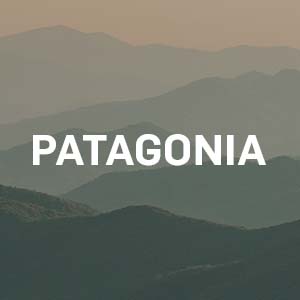Case Study: Crowd Cow
Somewhere in no man’s land, between the entrenched forces of cooking meals at home on one side and ordering food in a restaurant on the other, lives a purchase variable that has been rediscovered in a big way: convenience. Walk into any apartment building, drive down any street, and you’re likely to see the easily identifiable boxes of delivered food, logo emblazoned and containing an assortment of prepared meals, pre-packaged (and often pre-chopped) groceries, or fish and meat ready for the oven, grill, or freezer. Due to pandemic-era availability and disinclination with in-store shopping, the boxed food business has seen a major increase, growing into a 4-billion-dollar industry in 2020. With a surge in sales more and more players have entered the market and a looming question is raised; how can a company set itself apart from the herd? Our answer: sustainability.
Let me introduce you to Crowd Cow, a meat delivery service focused on taste, transparency, and convenience. At the core of their brand is a desire to create a meaningful connection between you and the food you eat. This starts with the local farms and fisheries they source food from, establishing a firmer connection between what you are eating, where it is coming from, and the impact it is having on the environment and the market itself. From free-range organic chicken to pasture-raised beef, the food sets a standard for localized sustainability in an industry fraught with the environmental and moral degradations of factory farming. From their FAQ webpage, customers can see a breakdown of how and why they source their food the way they do, including detailed answers to what qualifies as “grass-fed beef” or “truly pasture-raised” chicken, adding an important element of authenticity between themselves and their consumers.
This dedication to sustainability continues past the pastures and streams they source their food from and into the specifics of how it arrives at your door. Upon receiving a box from Crowd Cow, after slicing through the packing tape and unfolding the cardboard, customers are greeted with this separator:
Right away you’ll see the rather impressive claim that “your order is 100% carbon neutral”. As someone who has personally tried a variety of boxed grocery services, I’ve always had a lingering concern that the environmental impact of delivery food was not worth the convenience and selection. To be met with this claim right after opening their package put this fear at ease, but also pushed me to look for further details, which were readily supplied. Crowd Cow offsets the carbon impact of every order they ship and provide a thorough breakdown of how this works via their blog. There, customers can learn about different funds and foundations they donate to and directly work with to reduce as much carbon dioxide as they emit into the atmosphere. Perhaps most importantly, all of these projects are audited by a third party to determine exactly how much carbon has been accounted for. This tangible approach to carbon neutrality is unique in both its breadth as well as its pragmatism.
Beyond carbon neutrality, they also provide quick instructions asking consumers to recycle the box and plastic film, dispose of the dry ice through evaporation, and most interesting of all, what to do with the packing foam. The biodegradable packing foam used to protect the food in transit is completely safe and sustainable. It can be used as a quick, clean, firestarter for lighting your grill, or can literally be washed away in your garden or down your sink. In addition to its easy disposal, the foam also requires 70% less energy and produces 80% less greenhouse gases than petroleum-based foams.
From the farm, to the post office, and finally onto your table, Crowd Cow is a prime example of practical and pragmatic sustainability. They move beyond the buzzwords of the delivery food industry and make them a reality, providing a service customers can feel good about when ordering and even better about when eating.
If you want to learn more about adding essential sustainability messaging to your brand or how to improve your own catalog, reach out to Devon at devonc@jschmid.com.
More case studies in our sustainability series:

From the name to the design, you know Seventh Generation takes sustainability seriously. Step behind the scenes to learn how they incorporate transparency and empirical detail in every aspect of their business.
Read the full case study here.

Whether it’s the Baggies or a fleece pullover, you already know Patagonia and their consistent messaging on conservation and sustainability. Dive deeper to see if the company authentically lives up to the reputation.
Read full case study here.
Thanks to Unsplash for all photos; Crowd Cow Photo by Madie Hamilton; Seventh Generation Photo by Vengadesh Sago; Patagonia Photo by Ivana Cajina.
Tags: Crowd Cow, Customer Experience, marketing, Patagonia, Seventh Generation, Strategy, Sustainability

